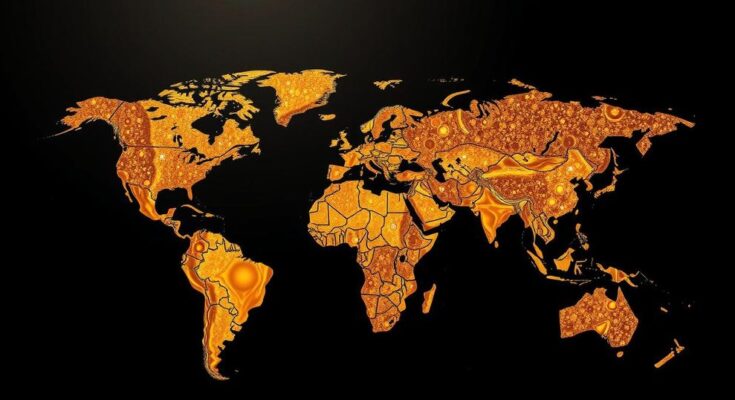The IMF is urged to sell 4% of its gold reserves to help low-income countries impacted by climate change, generating about $9.52 billion for debt relief. This comes as many of these nations face increasing repayment burdens due to crises like the COVID-19 pandemic. The limited funds of the CCRT emphasize the need for broader financial support, which could be bolstered by liquidating a portion of the IMF’s gold reserves.
The International Monetary Fund (IMF) has been urged to sell 4% of its gold reserves to provide debt relief to low-income countries severely affected by climate change, according to a new study. With climate financing being a significant topic at the COP29 summit, vulnerable nations have increasingly sought financial assistance from the IMF following crises such as the COVID-19 pandemic. This surge in demand has led to heightened debt repayments for these countries. Despite the existence of the Catastrophe Containment Relief Trust (CCRT), which is designed to assist impoverished nations, its resources are limited and only benefit around 30 eligible countries. Researchers from Boston University highlighted that the CCRT’s funding, currently at $103 million, is insufficient to tackle the extent of climate-related financial burdens faced by these nations. The report indicates that selling a fraction of the IMF’s gold reserves, currently valued at around $2,600 per ounce, could provide significant financial relief. By liquidating 4% of its holdings, the IMF could generate approximately $9.52 billion, which would facilitate debt relief for 86 countries, enabling them to redirect funds to critical priorities without the strings attached that accompany typical IMF loans. The last sale of IMF gold occurred between 2009 and 2010, primarily triggered by a need to expand loan capacities. With countries like Madagascar prepared to allocate substantial portions of their budgets for IMF repayments, there is an urgent need to rethink funding strategies to alleviate these pressures.
The discussion surrounding the IMF’s gold reserves has resurfaced amid ongoing financial challenges faced by low-income countries, particularly those vulnerable to climate change. The urgency of this situation has been accentuated at international forums such as COP29, where climate financing is a pressing issue. Countries struggling with repayments to the IMF have sought assistance as the costs of servicing their debts increase, particularly in light of recent global crises and the limitations of existing funds like the CCRT.
In summary, the suggestion for the IMF to sell a modest percentage of its gold reserves is aimed at addressing the critical financial needs of low-income countries grappling with the consequences of climate change. This move could not only provide essential debt relief but also empower these nations to better manage their finances without the burden of conditionality typically associated with IMF loans. With growing obligations to the IMF, the call for increased flexibility and support for vulnerable countries cannot be overstated.
Original Source: www.mining.com




